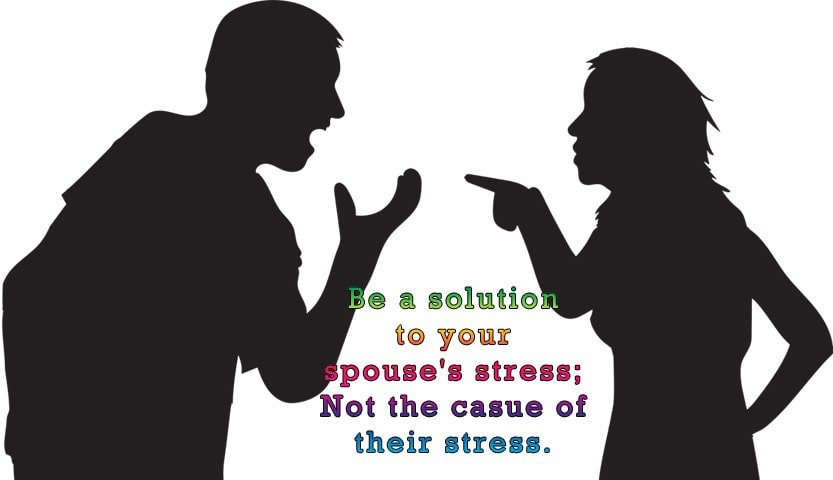Stress

Stress is the body’s natural reaction to difficulties or changes in the environment. It is a typical physiological response that gets the body ready to react to a perceived danger or threat.
Numerous things, including demands at work, money troubles, marital issues, and other events in life, can lead to stress. The “fight or flight” reaction, which primes the body for action, is triggered when the body is under stress.
The chemicals adrenaline and cortisol are released as a result of this reaction, raising blood pressure, glucose levels, and heart rate.
Physical and mental health can be seriously affected by prolonged or chronic stress. In addition to contributing to the rise of a number of health issues including heart disease, diabetes, and obesity, it can result in diseases like anxiety and depression.
Learn self-practices like exercise, meditation, yoga, or other relaxation techniques, as well as get adequate sleep, to reduce stress.
Stress Physical Symptoms
It is essential to remember that stress can worsen current medical disorders or result in the development of new ones.
In addition to experiencing a decreased immune system, those with chronic stress may also be more susceptible to infections and diseases.
If you are worried about your stress levels and how they could be affecting your health, talk to your primary care doctor or a mental health specialist.
In addition to assisting, you in managing your stress, they may help you rule out any underlying medical disorders that might be the source of your symptoms.
Stress can cause a wide range of physical symptoms, including:
- Headaches
- Chest pain or rapid heartbeat
- Fatigue
- Upset stomachs, such as diarrhea, constipation, or nausea
- Loss of appetite or overeating
- Insomnia or sleep disturbances
- High blood pressure
- Skin rashes or acne
- Teeth grinding or jaw clenching
- A weakened immune system, makes you more susceptible to colds and other infections
- Aches and pains
- Gastrointestinal issues, such as indigestion, diarrhea, and nausea
- Skin problems, such as eczema and hives
- Sleep disturbances, such as insomnia or nightmares
- Loss of sexual desire or ability
Stress Effects on the Body
The body can experience a variety of short- and long-term effects from stress. Short-term stress can result in physiologic symptoms such as a faster heartbeat, tense muscles, and disturbed digestion.
These responses are a natural physiological response to perceived threat and are a part of the body’s “fight or flight” response.
In the long run, chronic stress can lead to a number of issues, including high blood pressure, heart disease, diabetes, and depression.
Additionally, ongoing stress can erode the immune system, leaving the body more vulnerable to illness and infection.
Additionally, stress may cause mental health issues including depression and anxiety, as well as encourage individuals to use drugs.
When the stress response is activated, the following changes occur in the body:
- Heart rate and blood pressure increase to pump more oxygen and nutrients to the muscles, in preparation for physical activity.
- Breathing rate increases to bring in more oxygen and remove carbon dioxide.
- Blood sugar levels rise, providing the body with more energy.
- Blood flow is directed away from non-essential functions, such as digestion, and towards the muscles.
- Muscles tense up, preparing for action.
- The immune system is suppressed, which can make the body more susceptible to infections.
What are the most Common Causes of Stress?
There are several causes of stress, and what stresses out one individual could not also stress out another. However, a few of the most typical sources of stress are as follows:
- Work-related stress: Meeting deadlines, dealing with difficult coworkers or supervisors, and job insecurity can all be sources of stress at work.
- Financial stress: Struggling to make ends meet, dealing with debt, or worrying about the future can all be causes of financial stress.
- Relationship stress: Conflicts with partners, family members, friends, or co-workers can cause stress in relationships.
- Personal health concerns: Stress can be caused by a chronic medical condition, or worrying about health issues, such as a loved one illness or personal health condition.
- Life changes: Stress can be caused by major life changes, such as getting married, moving to a new home, or starting a new job.
- Trauma or loss: Experiencing a traumatic event, such as the loss of a loved one, can cause significant stress.
- Environmental stressors: Noise, pollution, and overcrowding can cause stress on a daily basis.
- Social isolation: This can lead to stress, depression, and anxiety when a person lacks a sense of belonging and good relationships.
Remember that these are only a few instances that cause stress and aren’t complete lists of stresses reason. Everyone reacts to stress in various ways, and what stresses one person out might not have the same impact on another.
Stress Effects on Relationships

Relationships are significantly impacted by stress. Someone may have trouble communicating, solving problems, and managing their emotions while they are under stress. This could cause disagreements and misunderstandings with close friends and family members, hurting the relationship.
- Communication breakdown: Stress can make it difficult for people to communicate effectively with one another, which can lead to misunderstandings, arguments, and even resentment.
- Decreased intimacy: Stress can also decrease intimacy in relationships by causing people to withdraw emotionally or physically from one another. This can lead to feelings of loneliness and isolation.
- Increased conflict: Stress can also cause people to become more irritable and short-tempered, which can lead to an increase in conflicts and arguments with loved ones.
- Difficulty in problem-solving : Stress can cloud judgment and make it harder to come up with effective solutions to problems, leading to a feeling of helplessness and more stress.
- Lack of support: Stress can also make it difficult for people to provide emotional support to their loved ones. People under stress may be more self-centered and may have less energy and resources to devote to their relationships.
- Adversely affect overall dynamics of the relationship: Stress can cause feelings of hopelessness, depression, anxiety, or anger that can erode trust, and compromise overall satisfaction and affection.
In order to keep a relationship healthy, it’s critical for partners to discuss their stress levels with one another and to cooperate on finding stress management and reduction strategies.
This might include figuring out how to relax and decompress together, learning how to communicate well and support one another when things get tough, and, if required, getting therapy.
How to Manage Stress at the Workplace
Maintaining general well-being and productivity involves monitoring workplace stress. Here are some techniques you may use to reduce workplace stress.
Prioritize tasks
Make a list of the things you have to do and order them according to priority and due date. This will enable you to prioritize your tasks and save you from becoming overburdened by a long list of things to complete.
Take regular breaks
Throughout the day, taking short breaks can assist to lower stress and increase productivity. Consider to take a break from your job and engaging in something you like, like going for a walk or enjoying a snack.
Practice time management
Make sure you manage your time effectively by setting realistic deadlines for yourself and breaking down large projects into smaller, manageable tasks.
Communicate effectively
Clear and effective communication with coworkers, managers and clients can help to reduce stress by reducing misunderstandings and conflicts.
Practice stress-reducing techniques
Regularly practicing techniques like meditation, deep breathing, or yoga can help to reduce stress and improve overall well-being.
Exercise
Regular exercise can assist to lower stress and enhance well-being. Stress can be reduced by even a tiny amount of exercise, like a lunchtime walk around the office.
Seek help if needed
If you discover that you are experiencing stress and it is impacting your ability to do your job or your basic well-being, don’t be afraid to ask for support from coworkers, supervisors, the Employee Assistance Program, or a mental health professional.
How to Manage Stress in Daily Life

There are several ways to manage stress in daily life: Few important ways are as follow:
- Exercise regularly: Physical activity can help reduce stress and improve overall well-being.
- Practice mindfulness: Mindfulness techniques, such as meditation and deep breathing, can help you stay present in the moment and reduce stress.
- Prioritize sleep: Getting enough sleep is essential for managing stress. Aim for 7-8 hours of sleep each night.
- Stay organized: Having a clear plan and schedule can help you stay on top of tasks and reduce stress.
- Connect with others: Spending time with friends and family can provide emotional support and help you cope with stress.
- Seek professional help: If stress becomes overwhelming, consider talking to a therapist or counselor.
- Be mindful of what you eat and drink: Avoid caffeine, alcohol, and sugary foods, which can aggravate stress.
- Make time for hobbies: Engage in activities that you enjoy, such as reading, playing music, or gardening.
- Take breaks: When you’re feeling stressed, take a few minutes to step away from your work and do something relaxing.
Finding a balance between controlling stress and continuing to take pleasure in life is important. Keep in mind that it’s acceptable to step back when necessary, and don’t be hesitant to get professional assistance if you need it.